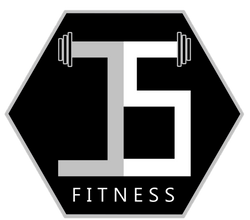
The Science Behind Rest Days: Why Recovery Is Just as Important...
Whether you're an athlete, a gym-goer, or just someone who thrives on high performance, pushing your limits might feel like the only way forward. But here's the truth: progress isn't just made during the grind. It's made during the recovery.
Let’s dive into the science of rest days and explore why recovery isn’t a break from progress — it's a crucial part of it.
🧬1. Rest Days Fuel Physical Recovery
When you exercise — especially during strength training or high-intensity cardio — your muscles undergo microscopic tears. This might sound alarming, but it's completely normal. These small tears are part of how muscles grow stronger. During rest, your body repairs these fibers, making them more resilient and better adapted for future challenges.
Without adequate rest, you risk overtraining, which can lead to:
-
Decreased performance
-
Prolonged soreness
-
Increased risk of injury
-
Chronic fatigue
According to research published in the Journal of Applied Physiology, rest days allow your glycogen stores to replenish, inflammation to subside, and muscle fibers to rebuild. It's during rest — not during the workout — that your gains are made
🧠2. Rest Supports Mental Health and Prevents Burnout
Rest days aren't just about physical repair — they play a critical role in maintaining mental and emotional well-being.
Exercise releases endorphins, but constant physical exertion without adequate rest can backfire. The body may start producing excess cortisol, the stress hormone, which contributes to feelings of anxiety, irritability, and even depression. In long-term scenarios, this can spiral into burnout — a state of emotional, physical, and mental exhaustion.
By incorporating rest into your routine, you allow space for:
-
Reflection and goal-setting
-
Mental relaxation and reduced stress
-
Reignited motivation and enthusiasm
Mental fatigue can be just as limiting as physical fatigue. Give your mind the same consideration you give your body
😴 3. Sleep: The Ultimate Recovery Tool
Sleep is often underrated, yet it's arguably the most powerful recovery tool available. During deep sleep, the body releases human growth hormone (HGH), which plays a key role in tissue repair and muscle growth. Lack of quality sleep has been linked to poor reaction times, slower recovery, and impaired cognitive function.
Prioritising sleep — especially on rest days — amplifies the benefits of your overall fitness routine and supports long-term health.
⚖️4. Balance Is the Key to Sustainability
Fitness is not a sprint — it's a lifelong journey. Pushing yourself every day without pause may feel productive, but it’s unsustainable. Rest days offer balance and give your routine longevity.
Here’s how to integrate rest effectively:
-
Active Rest Days: Low-impact activities like walking, yoga, or gentle stretching can keep the body moving without strain.
-
Passive Rest Days: Complete rest with no structured physical activity allows for full-body recovery.
-
Listen to Your Body: Soreness, fatigue, and irritability are signs that your body may need more time to recover
Final Thoughts: Rest to Rise
Your body doesn’t grow stronger during the workout. It grows stronger when you rest. To avoid burnout, reduce injury, and keep your goals sustainable, you need both effort and recovery.
So next time you’re tempted to skip your rest day? Don’t. You’re not taking a step back — you’re fuelling your leap forward.




